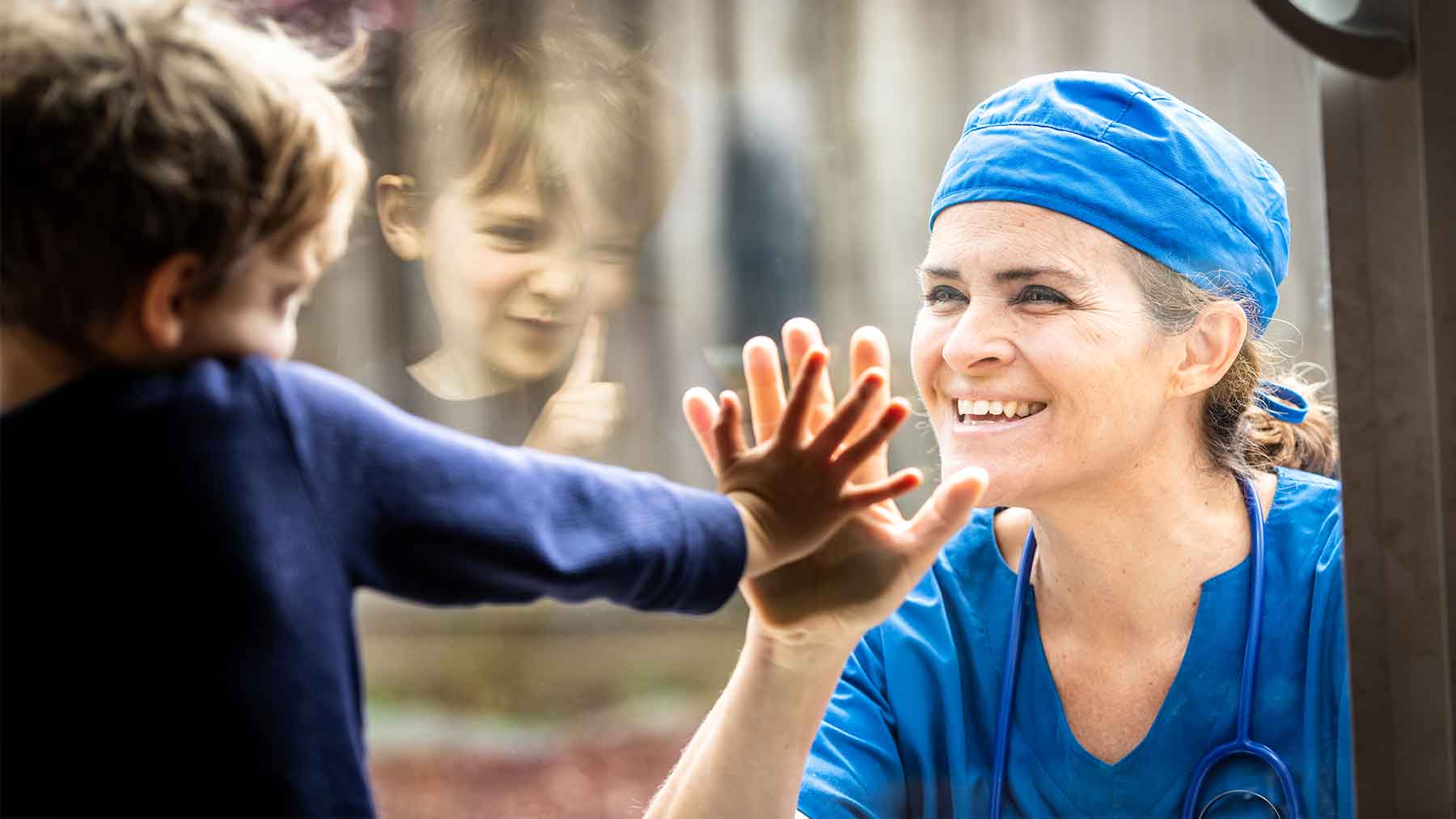You’re an essential worker. How do you avoid bringing COVID-19 home?

Editor’s note: As what we know about COVID-19 evolves, so could the information contained in this story. Find our most recent COVID-19 blog posts here, and learn the latest in COVID-19 prevention at the Centers for Disease Control and Prevention.
While millions of Americans are working from home during the COVID-19 outbreak, many others don’t have that option. Essential workers—from the front-line emergency room physician to the cashier at your local grocery store—are at higher risk of not only contracting COVID-19 but bringing it home once they clock out.
As a primary care physician, I’ve been using telehealth as much as possible, but I still need to see some patients in person. I consider it a privilege to be able to care for my community during these difficult times.
I also understand the risk. So does my family.
We’re doing our best to keep COVID-19 out of our house. We’ve also talked through what we’d do if I become infected.
Here are my tips for managing your risk of bringing COVID-19 home. Keep in mind that some of these decisions are personal. If you have family members with suppressed immune systems or other preexisting conditions, you might consider more extreme measures. These are unprecedented times, so it’s important not to be prescriptive—just make the best decisions you can for your family.
Wash at work.
We’re already diligent about this in my profession, but if regular hand-washing wasn’t a part of your normal workday, now’s the time to start. I have a bad habit of touching my face, so I’ve also begun regularly washing my face at work too.
Wear appropriate protective gear on the job.
This obviously differs depending on the work you do. I’m now wearing a mask and goggles whenever I see a patient in person, and we’re all wearing masks in the office.
When you go home, leave your shoes outside.
A recent study from the Centers for Disease Control and Prevention found that shoes might carry the coronavirus, so I take my shoes off before I go into my house.
No hugs just yet.
I take off my clothes right after I get inside and toss them in the washing machine. Then I take a shower and put on a clean set of clothes. I don’t let anyone touch me until that’s done.
And then … try to feel normal.
There’s only so much you can do. Trusting that I’ve done my best to protect my patients and my family, I try to promote a sense of normalcy back at home. It’s important to have that balance.
Plan for the worst, but don’t dwell on it.
There’s some comfort in having a plan for how to handle child care or physical space issues if you do catch COVID-19. My husband is very much a planner, so he’s thought through how to lay out our house to keep me isolated if I were to become infected. But we don’t spend too much time thinking about this. Again, balance.
Be open with your family about what’s going on.
I have a 3-year-old, and when I tell her something like, “We need to take our shoes off outside,” she’s started saying, “Because of the cowonavirus?” I think it’s really important for kids to feel like they can have their questions answered in a way that’s straightforward and truthful. Think through how you’re going to talk about this as a family—what is the script for how you answer questions about. COVID-19 and questions like, “Are you going to die?” Our answers to these kinds of questions not only inform our kids but can also address our own fears and anxieties.
Seuli Brill is a primary care physician at The Ohio State University Wexner Medical Center and an associate professor at The Ohio State University College of Medicine.




